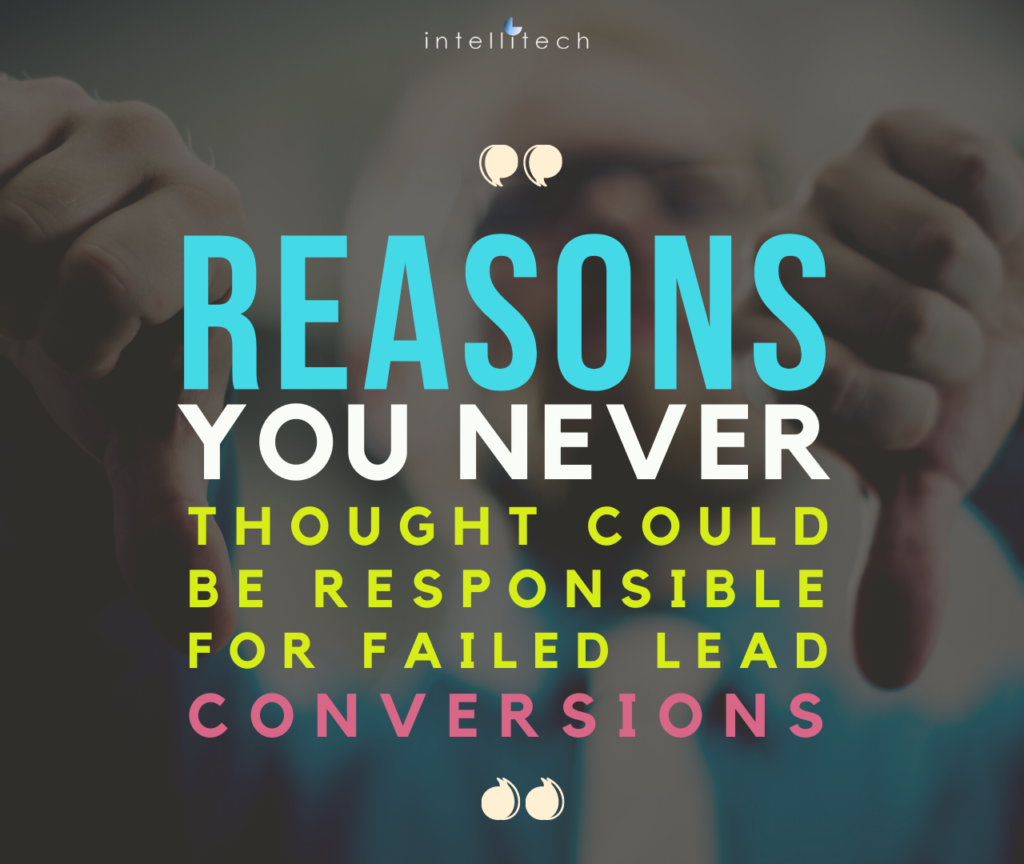Lead generation can be simplified by changing the approach and by taking a few steps backward to analyse some of the underlying and subtle factors that could be working against your goals. Looking closely may help, and you may be surprised to find out how some of the not-so-obvious factors can actually play an important role in converting leads.
In one of our recent blogs, we talked about ‘Reasons why B2B Marketing leads fail to convert.’ This blog talks about some more reasons that could be responsible for failed lead conversions.
Lack of quick response:
The market situation is unpredictable, the competition is tougher than ever before and the customer is digitally active and well aware of what he wants and where to get it from. In this situation the last thing any B2B marketer would want to do is a late response to the customer. Any delayed response can lead to lesser conversion.
If you respond immediately you will most likely be able to keep the customer in the loop and retain his interest and thus successfully engage him
Being prompt is as good as converting a lead, so that way you could only be a response away from converting a lead! And it’s true because a response will not only impress the customer, but further encourage him to communicate and even be interested in setting up a meeting. This is the golden chance every b2b marketing person would wait on for and a quick response might just do the trick.
Inefficient lead nurturing
- Lead nurture emails get a higher response as much as between 4 to 10 times (source: DemandGen)
- Companies that do focused lead nurturing have 50% more chances of generating sales-ready leads that convert (source: Forrester research)
These figures are proof that lead nurturing is a quintessential strategy for converting leads and why not? Any sales person who is adept and is aware of the sales and market climate would know that nurturing is indirectly about acquiring sales, because at the end of the day it’s all about building long term relationships.
Any lack in nurturing is pushing the customer away rather than taking him forward towards conversion
Nurturing gives the scope for any sales team to develop a rapport, offer what the client needs in terms of outstanding content and other offers and keep at it proactively to maintain interest and further engage the lead. Many marketers have a tendency to focus on the top of the funnel that can definitely produce positive results; however if you want the results to keep coming in consistently; then focusing on nurturing the leads is the way to go about it.
Inflexible price models:
This is probably the non-negotiable part of the sales deal; but it can change the game if the prices are made agile and are customized as per the lead and as per the need to convert the lead.
Having price models that are inflexible can make a customer go to your competitor who might be offering the same service at a different price. This is where customization plays a vital role and a flexible price model will definitely help you convert more leads.
Apart from the above, there are other reasons such as producing high quality content in a strategic manner, having at least a few highly experienced sales people in the team who have dealt with different types of customers earlier and can guide the team for better results etc. These things can change the way you convert leads and the way you do sales.
Conclusion:
Each business is unique and each customer wants something different. Agility and versatility plays a big role when it comes to sales success. There isn’t a better time for cultivating long term relationships by being empathetic than it is now. So, as a marketer you can make the best of this opportunity and tune into your own strategies in a better way to see where things can be fixed for better results.

